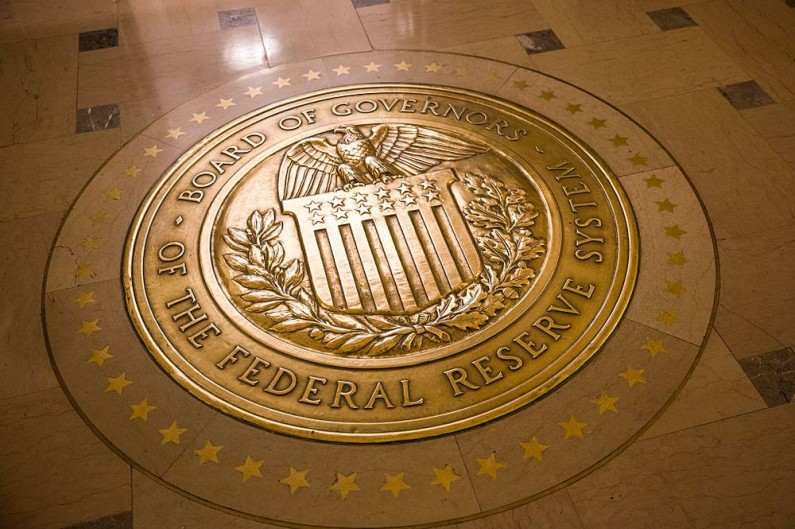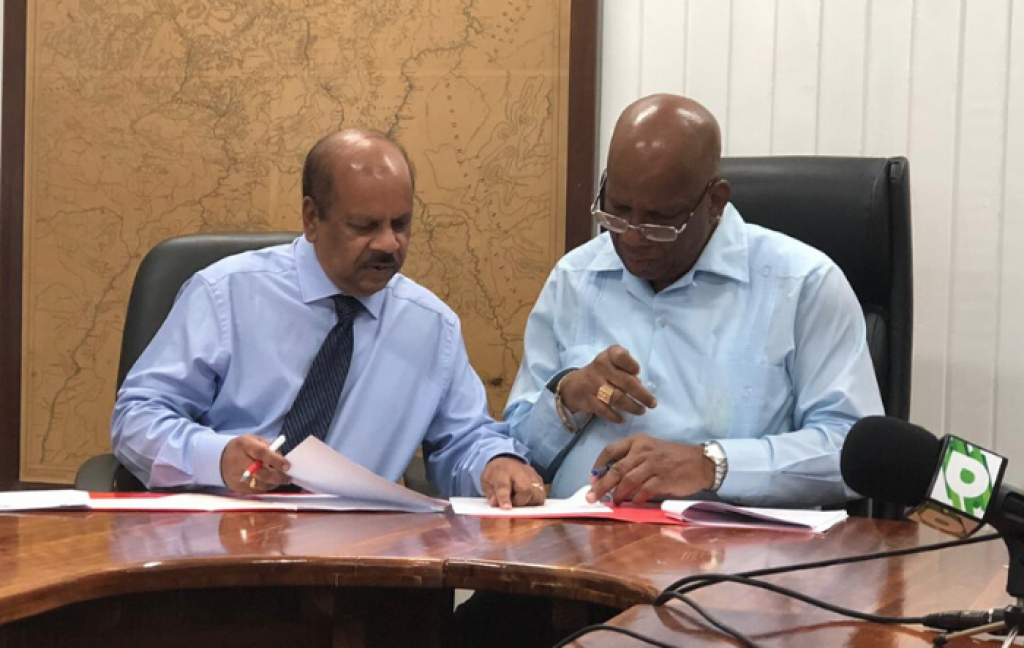
The decision to place Guyana’s revenue from oil in the United States Federal Reserve Bank has been defended by the Finance Minister.
Finance Minister Winston Jordan supported by the Central Bank Governor Dr. Gobin Ganga both agreed that placing the finances from the Natural Resources Fund (NRF) in US reserve is the best move.
Their statements yesterday came on the heels of criticisms over the move.
Dr. Ganga told reporters that the Federal Reserve System – the central banking system of the US is by far the safest institution to hold Guyana’s petroleum revenues.
The governor noted that foreign assets belonging to Guyana have been kept at the Federal Reserve for close to 50 years, and it is in safe hands when the other available options are considered.
“Let me tell you, you want to put your money at one of the safest institutions. There are many of them, but the Fed is one of them. The Fed was approached long back. You just don’t go and talk to them. You have to engage them. We have been talking for months,” Dr. Ganga explained.
On the other hand, Minister Jordan noted that Guyana could make an average of three percent interest on its investment, but the ultimate aim is to meet an average of 32 percent long-term (interest).
“After investing in all these different assets, the aim over time is 3 percent. So sometimes you may get 1.5 percent, sometimes you might be lucky to get 4 and a half per cent. Sometimes we might get 3.2, 2.8 percent. And long term 3 percent…because the safer the asset, the lower the interest”.
According to Jordan, Guyana could not earn any interest if the money was saved locally.

The Bank of Guyana is responsible for the management of the Natural Resources Fund including receiving and accounting for all deposits, investing in eligible asset classes, reporting on the performance on a monthly, quarterly and annual basis and providing the public with information on the NRF as required by law.
In preparation for its role as operational manager of the NRF, the Bank has begun to build additional capacity supported by the World Bank’s Reserves Advisory and Management Programme (RAMP), with whom an agreement was signed on October 1, 2019, according to the Ministry of Finance.
The governor and other officials responsible for the handling of the NRF could face penalties for acts of omission or negligence.

















You must be logged in to post a comment Login